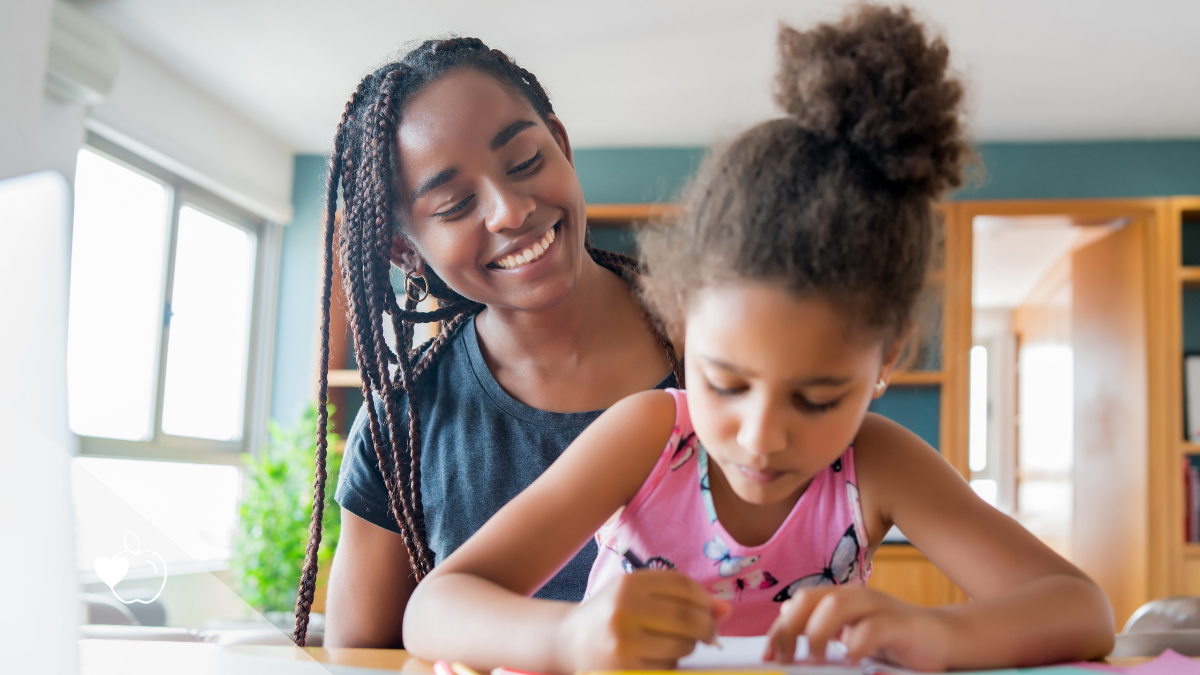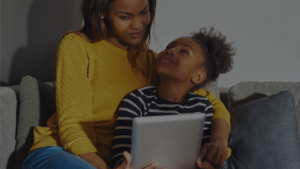In 2020, as schools closed across the globe, parents worldwide grappled with a number of challenges. Earlier this year, we spoke to parents from South Africa, Kenya, and England about their experiences and discovered just how much these three families have in common, even with thousands of kilometres between them.
Pressure on parents
All three parents spoke about how hard it has been to balance full-time work with childcare and remote learning.
Alex has a seven-year-old daughter in the UK. She notes how it feels like there’s ‘an expectation from our school to do some comprehensive home learning … I am happy to facilitate this as best I can … [but] I’m not a teacher. I don’t have the skills my daughter’s teacher has and I don’t want to do more harm than good when trying to help her complete her work.’
Rosemary, a parent to two children (Grade 1 and Grade 3) in Kenya, shares: ‘When they started online learning in May 2020, they needed chaperoning during the lessons. This was a requirement by the school as this age group is considered young and not fully able to self-direct. The lessons started at 8 a.m. and ended at 1 p.m., which were also active work hours for me. I had to balance between work and sitting in on the younger one’s classes (which was really interesting!).’
Rosemary also speaks about unexpected challenges: ‘Financially, we saw a lot of utility costs go up from electricity to food and water. These little ones snack quite a bit! The four of us [also] needed separate physical work spaces, desks and computers/laptops. The separate physical spaces were necessary for the two children as they both spoke loudly when responding during class …’
For Bongi (South Africa), the biggest worry was the lack of childcare options available to her when schools closed. ‘I am a single mom and I work outside the home. If I couldn’t find someone to look after my children, then I would have to quit my job. Luckily, my nephew (age 18) couldn’t go to college either so he agreed to stay at home with my kids.’
Bongi has also had extra costs (‘data is very expensive, and I had to pay for extra food for my nephew because he was now staying with us’) and she’s been worried about the schoolwork her sons (Grade R and Grade 5) have missed. ‘Our school did not send us anything for six months, except bills for school fees. My boss has a Grade R child at a private school and those teachers sent a lot of nice videos and things. My boss shared those with me for my sons to watch but I was still worried about how my Grade 5 boy wasn’t learning. My boss helped me to download free textbooks with Snapplify Free Access so we used those to practise when I could help him on weekends. But I didn’t get any help from the school.’
When asked how she accessed the videos and free ebooks, Bongi said, ‘We had one old laptop we were all using but in November, my son dropped it by mistake so now they can’t do those things anymore.’

Parenting positives
‘We did things to stay busy! When we couldn’t go out to the park, we did baking and colouring in, or played soccer in the yard. I’m proud of my kids – it’s hard being at home for so long,’ says Bongi.
Rosemary shares: ‘I got to spend a lot more time with my children and all of us as a family, in fact this was the longest we had ever spent with the children. During our conversations they surprised me with their insights into the pandemic and even noted the positive of it enabling families to spend more time together!’ Alex echoes this, saying that lockdown ‘encouraged some really special memories that we will have for a long time’.
Teacher appreciation
‘I’ve tried my best but my kids need their teachers,’ says Bongi, while Alex admits how she’s realised she ‘would make a terrible teacher’. ‘I wholeheartedly admire our teachers and all they do,’ she says.
Rosemary reflects: ‘I also got to appreciate the dedication, patience and commitment of our teachers in teaching our children, especially the younger ones. As I sat through my children’s classes I got a preview of just how short an attention span the little ones have, and how challenging it is to keep them all engaged at the same time. The teachers’ patience and firmness were amazing as they engaged remotely with the children.’
Looking forward
Bongi has preferred for her kids to stay home when infection rates have been high but notes that she really hopes school can go back full time as soon as possible. Alex also shares how she has ‘full faith in our primary school to follow the rules and ensure my daughter’s safety’.
While Rosemary’s children have been at a private school in Kenya, she notes that ‘the Ministry of Education [needs to develop] measures to deal with the disparities that we have witnessed between the privileged (private schools and international schools) and the underprivileged (public schools) in education’ – a situation reflected by Bongi’s story too.
‘I feel that the Ministry of Education has a lot to take away from this experience in terms of offering online resources or alternate resources for all the learners in Kenya. These resources were largely lacking and whatever was available was not effectively rendered,’ says Rosemary.
Rosemary hopes that ‘the school system in Kenya is able to incorporate technology in education to a higher degree to improve learning and manage disruptions’. Bongi, too, says ‘It would be good if the [South African] government could help with devices or textbooks, especially if and when schools close again.’
Alex sums up the hopes of parents everywhere when she says: ‘My hope for education this year is that life can return to normal for my child.’



